Finding the Story in Every Day at The Olympic Games
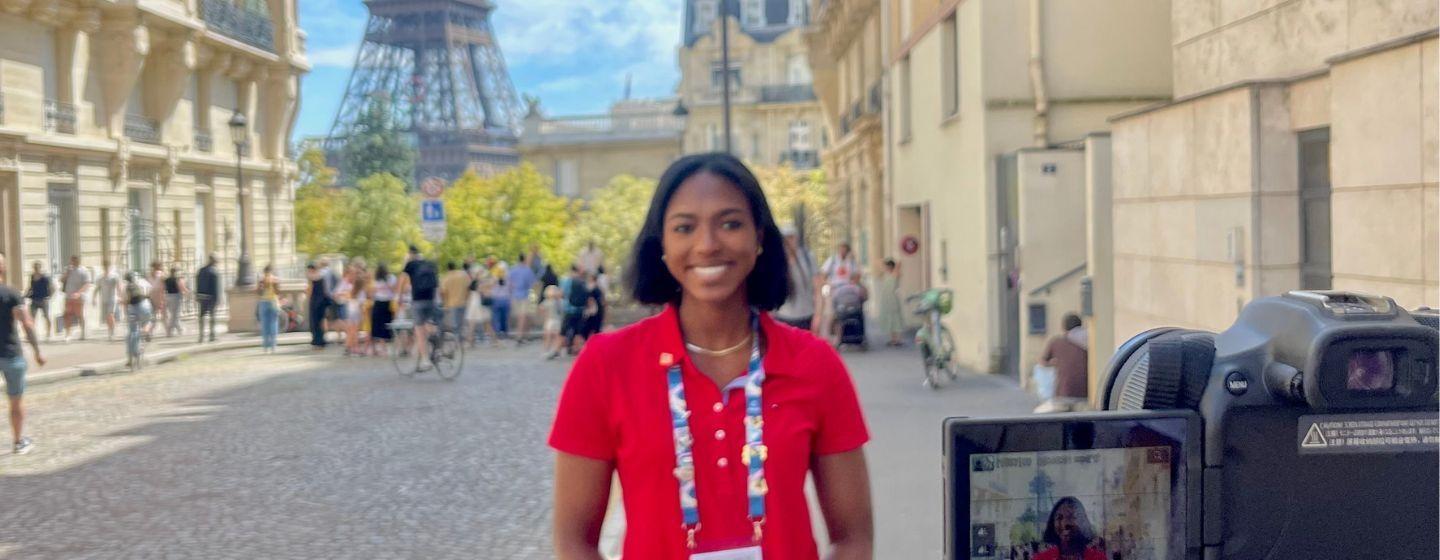

As a sports reporter, I have always been told that the best ability is availability. I do not know if I ever fully understood the weight of that notion until I spent two weeks at the 2024 Paris Olympic Games with essentially no accreditation and little to no plan.
In January, I was chosen as one of the fortunate students to take a study abroad trip to cover the Olympics as a reporter with the University of North Carolina Hussman School of Journalism and Media. I first learned of this potential opportunity when I visited UNC as a prospective student in my senior year of high school. Ever since that moment, I knew I had to work hard enough throughout the next four years to ensure I would be selected for this venture.
I was excited. Like the most excited I have ever been about anything, really. Just to be there! To be surrounded by the best athletes in the entire world. I believe greatness can be contagious if you open yourself up to catch it. I am a far better reporter than I was just two weeks ago, and here is why.
The greatest lesson I learned while at the Olympics was how to find the story in everything you do. Even the most mundane tasks — like eating lunch or riding on an empty subway — contain a story waiting to be told.
I was in Paris, just footsteps away from some of the greatest athletes of all time, but between those steps were fences, blockades and checkpoints that I could not get through. For the Olympics, high-level accreditation requests must be submitted two years prior to the Games. Like most of the students on our trip, the media outlet that I was paired with through UNC was not aware of this program in 2022 to make that request, so we had no access.
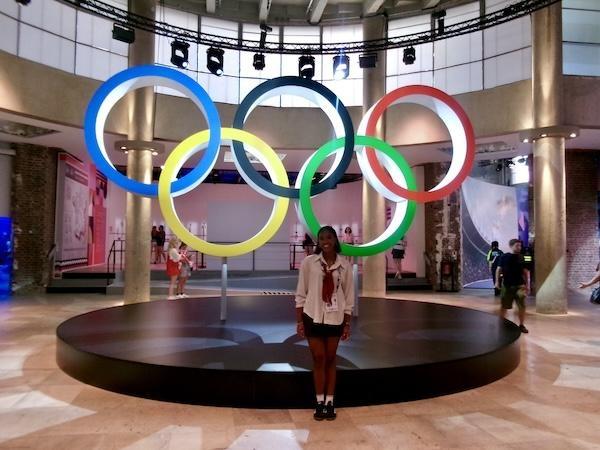
This was a hurdle that I did not plan to have to overcome as I spent the past months blindly smiling ear-to-ear, intoxicated by the thought of eating chocolate croissants, walking from venue to venue, and getting in with a flash of my pass. This was not my reality; well, except for the daily croissants.
In my head — much like Sydney McLaughlin-Levrone soaring over each hurdle on her way to breaking her own world record in the 400-meter hurdles — I knew I had to push myself to make this trip successful. I readjusted my mindset and focused on what I did have access to: the people who were not competing.
Through a friend who was at the Games, I was offered a ticket to watch Olympic skateboarding on my second day in Paris. I jumped at this opportunity and thought, “Let’s get started! It’s all up from here!”
But the event was postponed, and my ticket was no longer available.
Trying to walk off the disappointment, I strolled around Paris to find my fellow reporters. I heard the jingle of Olympic pin traders cross my path. I stopped in my tracks, turned around, and followed what I hoped would be a story.
I met three men weighed down by hundreds of small pins from 12 different Olympic Games and countries worldwide they had collected over the years. They told me why they do what they do and gave me a handful of miscellaneous pieces of metal to start my Olympic pin-trading journey.
Instead of keeping my head down, I looked up for the next hurdle to spring over. The pins were conversation starters with strangers every day. This unexpected activity connected me to people I would have never talked to without my pins catching their eye, and it created a unique bond with people I already knew.
Jonathan Owens was in Paris to support his wife, the renowned gymnast Simone Biles. He is an NFL player for the Chicago Bears, which happens to make us coworkers, as I am a reporter for the team. The first thing Owens asked when we met up overseas was, “Where’d you get all those?” referencing the adornments pinned to the lanyard around my neck.
He had just one, so I traded a 1996 Atlanta skyline Olympic pin for a golden heart with the signature of the most decorated gymnast in U.S. history in gold writing on top. The stories in that pin itself are infinite.
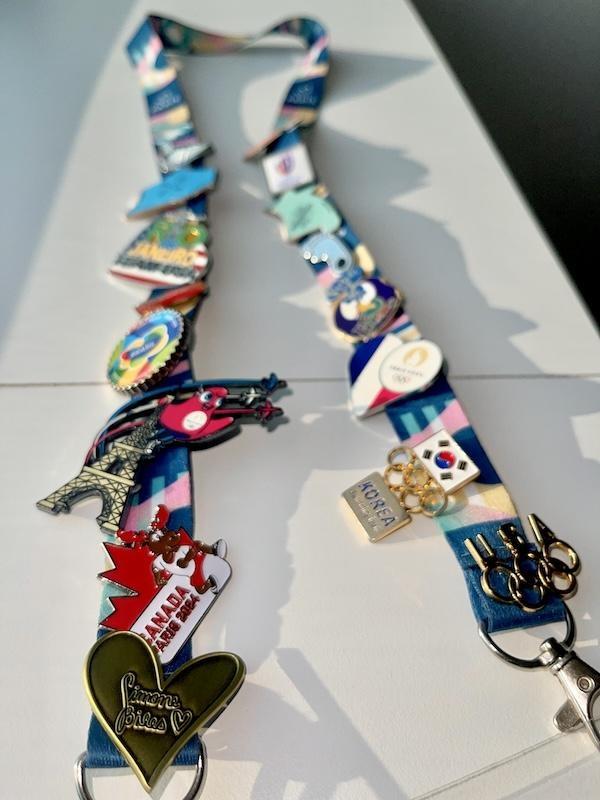
The day after our exchange, Owens and I went to the Louvre. I thought I was taking the morning off and going as an art appreciator, not a reporter. I quickly learned an invaluable lesson — there are no days off in journalism. Every experience can yield a story that is begging to be told.
Throughout his relationship with Biles, Owens has made it a point to learn gymnastics and even takes notes on a scorecard at all her competitions. Leaving the Louvre, he bought a new pen for the special occasion of his wife’s Olympic all-around finals later that night. This pen displayed the iconic Mona Lisa, and I took a video of his new stylus and posted it to my personal Instagram story, simply because I had an interest in it.
During the competition, this pen story took off! I had thousands of views on my Instagram story post, the NBC broadcast discussed it, major outlets posted about it on social media, and People Magazine wrote an article about Biles, Owens, and the pen around the screenshot of my story.
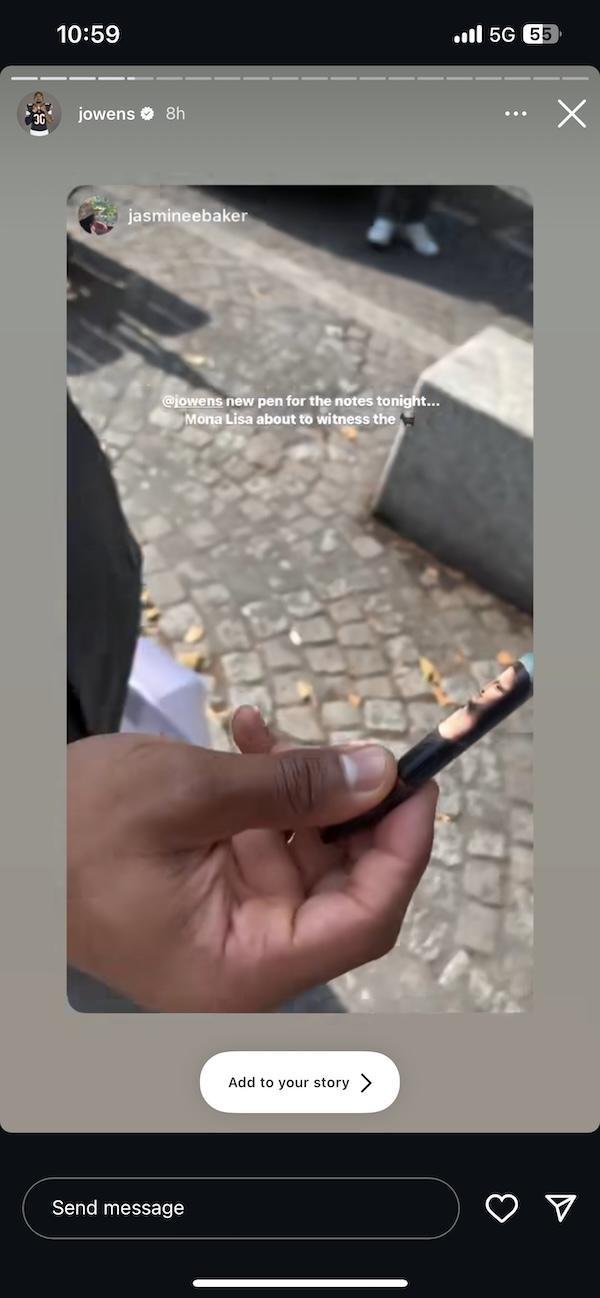
I could have never predicted people would care this way about a pen that costs less than $5, but I was reminded that people cannot care about something they do not know about. It is the reporter’s job to bring the quirks of life to light.
Between learning about sports I’ve never seen before, navigating life stories in foreign languages, and trying food I couldn’t pronounce, reporting at the Olympic Games taught me that there is a story left behind in every word left unspoken. To simply be there, in whatever moment, is a journalist's greatest strength.
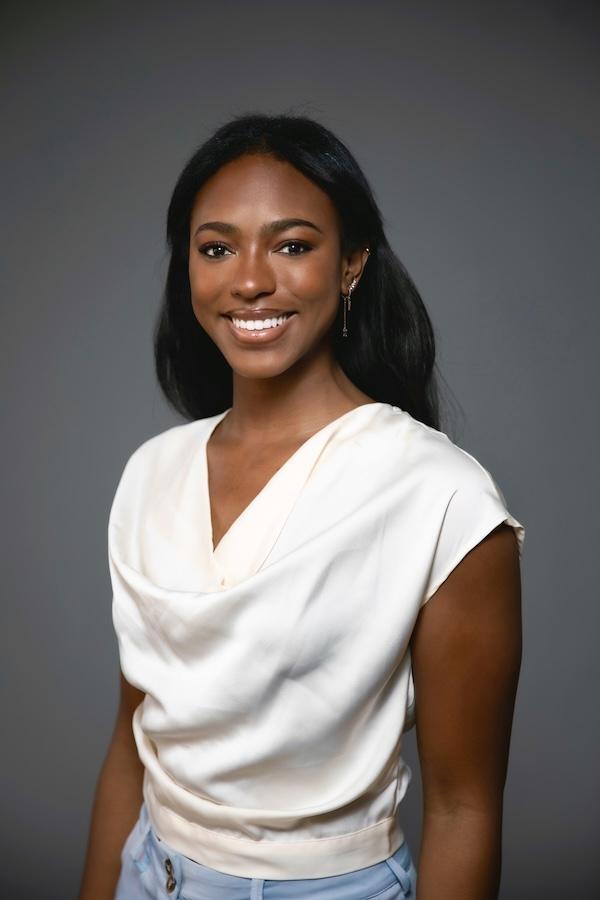
Jasmine Baker is a recent graduate of the University of North Carolina where she studied Sports Broadcast Journalism with minors in History and Coaching Education. The Mississippi native currently resides in Chicago, IL, specializing as a storyteller in Content and Production for the Chicago Bears. Baker has been a sports reporter since high school and she is dedicated to sharing the stories of athletes both on and off the field.